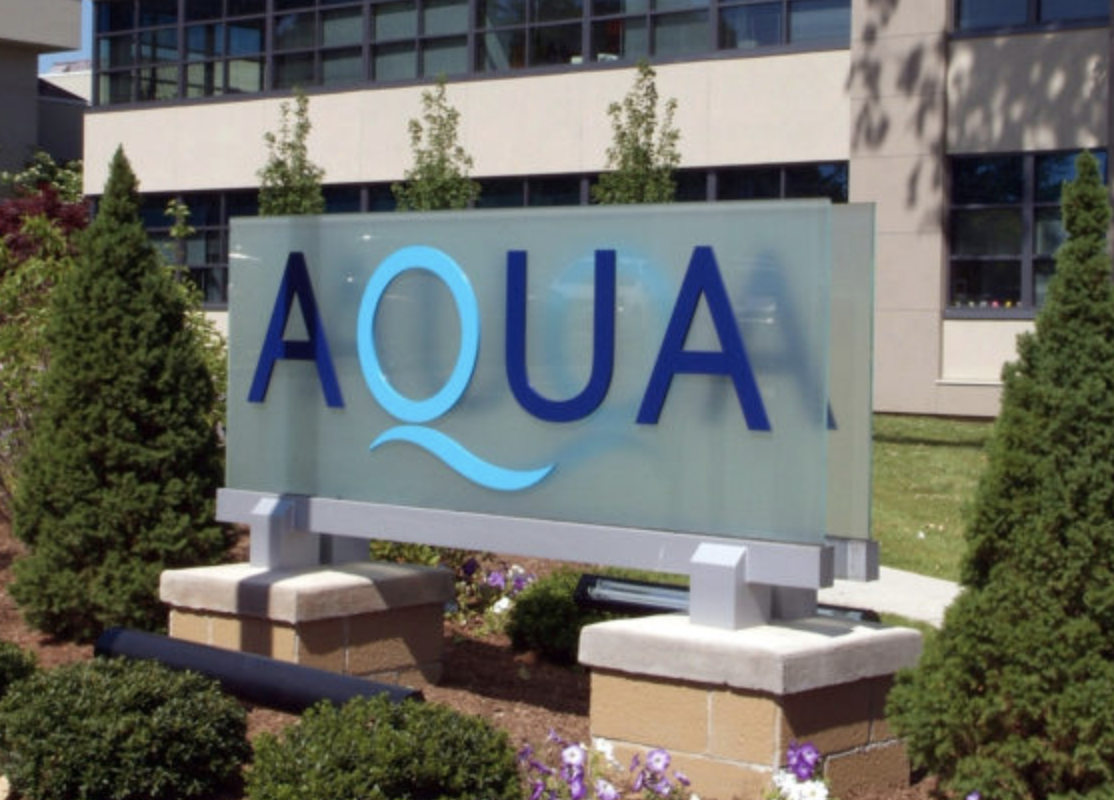The Willistown Board of Supervisors brought an end to deliberations over the sale of the township’s sewer system to Aqua PA at a Friday night meeting. It was the conclusion of a contentious debate over many months to a deal opposed by local residents.
David McMahon, a candidate for municipal council in nearby Norristown who was at the meeting, told DVJournal the supervisors had taken advantage of a kill clause in the Aqua/Willistown contract.
“There’s basically a termination clause in the contract after a certain time period,” McMahon said. “They’ve chosen to go that route. Last night’s meeting was to pass the ordinance to activate that feature of the contract.”
It “remains to be seen” if Aqua will challenge the termination, McMahon said. But “this really should be the end of it,” he added.
After the meeting, McMahon wrote on Facebook that “[Aqua] CEO Chris Franklin and President Mark Lucca left the auditorium empty-handed” following the decision.
“Folks there have been fighting the sale of their sewer system to Aqua Pennsylvania for a couple of years now,” McMahon wrote, adding that “their amazing tenacity paid off tonight.”
Julie Frissora, a Willistown resident who has advocated against the Aqua deal since it became public, told DVJournal the contract was terminated at the earliest possible opportunity.
“On April 14th, all of the provisions in the termination clause materialized,” she said. “That day was the first time the township could exercise their rights under that contract with Aqua to terminate it.”
Township officials could not be reached on Saturday. A spokeswoman for Aqua did not immediately return a request for comment.
Aqua America, owned by Bryn Mawr-based Essential Utilities, has been on a buying spree across the region, purchasing — or attempting to purchase — utilities, including Chester Water Authority and the DELCORA wastewater system. According to a report by the progressive group Food and Water Watch, the four largest Aqua acquisitions resulted in an average rate increase of 280 percent, or 8 percent per year, when adjusted for inflation.
“Water corporations have become increasingly aggressive, and even the best-run water systems like CWA are under attack, which should sound the alarms for communities nationwide,” Mary Grant with Food and Water Watch told The Guardian last year.
Willistown supervisors had earlier posted a schedule of the “special meeting” held at General Wayne Elementary School. The board would consider “a resolution to terminate the asset purchase agreement with Aqua Pennsylvania Wastewater, Inc.”
The resolution in question directed the township manager “to send Notice … that the Agreement is hereby terminated and abandoned without liability or other obligation of either Party.”
The potential sale of the utility to the private water company had twisted and turned its way through Pennsylvania courts and regulatory agencies prior to this week’s termination.
Administrative Law Judge Jeffrey Watson had in April of last year recommended the deal be scuttled due to concerns that Aqua was poised to charge ratepayers higher prices for the system after its acquisition.
In July, Pennsylvania Public Utility Commission regulators approved the sale, directing Aqua to freeze rates for two years following the acquisition.
The state Office of Consumer Advocate appealed that decision in August. An OCA attorney argued that the sale “would not provide any net benefit to safety and reliability because Willistown is not a troubled system.”
Many Willistown residents had fiercely opposed the proposed sale before Friday’s vote to scuttle it.
“You have a chance to decide what you want your legacy to be,” one resident told the board on Friday. “I think [the supervisors] have had the township’s best interests in mind. This does not.”
“I’ve talked to many of the people in our community,” another said. “All of them are against this.”
McMahon told DVJournal that at the meeting, “the only two voices in favor of Aqua were [CEO] Franklin and [President] Luca.”
“One of the residents asked people who opposed the sale to stand up,” McMahon said. “It was virtually the entire auditorium.”
Frissora said the township supervisors argued they had “made a good-faith decision back in 2020” when embarking upon the deal, but “in the intervening time period, they heard what the citizens had to say.
“I don’t know what they individually thought,” she said. “But they did listen to their constituents.”

